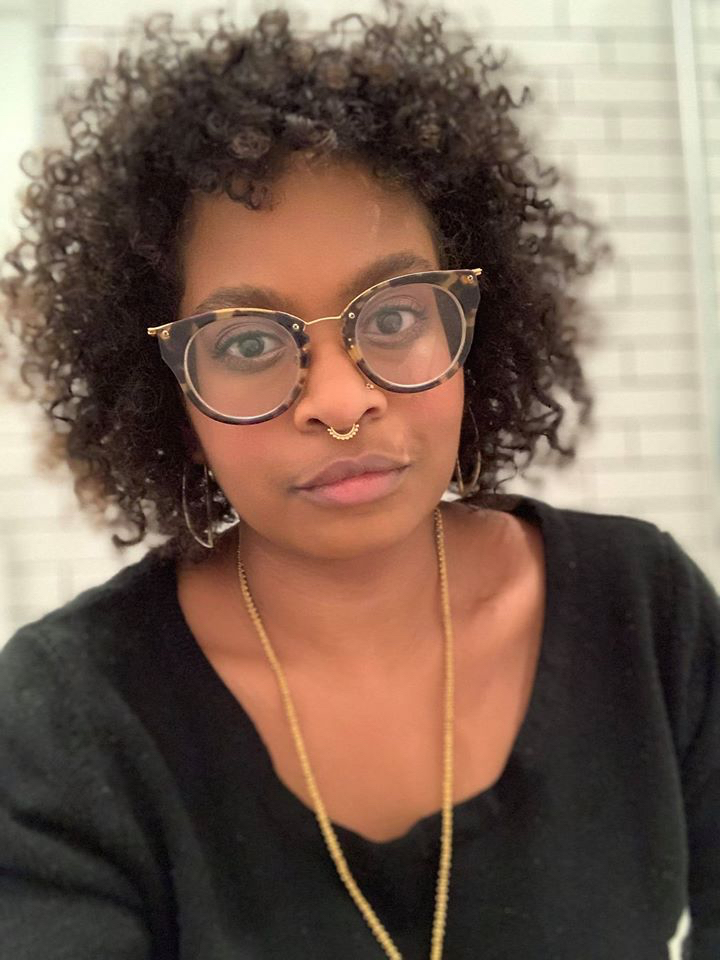
From arcades to gaming consoles to points-based customer rewards systems, gaming is everywhere. Games and gamification will continue to become a part of modern society in more ways than one, but for women, breaking into the professional gaming industry can be challenging.
Megan Condis, an assistant professor co-affiliated with the Department of Journalism and Creative Media Industries (JCMI) and the Department of Communication Studies at the College of Media and Communication (CoMC), says she grew up being around arcade games which grew her love of gaming.
 “Games were always a part of our household,” Condis says. “I was the most interested
in the games and the most impressed with the games that would try to use the meager
resources of an arcade machine or of an NES console to try to tell a story.”
“Games were always a part of our household,” Condis says. “I was the most interested
in the games and the most impressed with the games that would try to use the meager
resources of an arcade machine or of an NES console to try to tell a story.”
Condis' interest in games grew into a career when she pursued an undergraduate degree in English Literature that taught her how to develop storylines within videogames and led to her helping create the Game Design & Culture certificate program at CoMC. Condis' parents encouraged her to get a degree in something outside of the gaming realm, thinking she couldn't make a living with it.
“I took this class about electronic literature and it ended up being all about video games,” Condis says. “I had given up on gaming because I knew I was never going to be Miss Whiz computer programmer. The class reminded me that writing interactive stories and using video games is the text I would be interested in investigating as an English professor. All these years later in communications, it was a reminder that this was something that I had always wanted to do.”
Historically, there has been a gender gap in those that create video games. This gap comes partly from the STEM gap of who's getting computer-oriented classes in school, but also from video games being primarily marketed toward men since the beginning of their creation. Women weren't making games because video games weren't being made for women.
“Indie game development, art game projects and solo game projects have started to gain a lot of ascendancy,” Condis says. “I think we're starting to see video games being reconsidered. Not just as a toy industry, where big companies are going to make billion dollar releases every year of the same title over and over again, but as an expressive medium. You can tell any kind of story and you can micro target a specific audience.”
Although the gaming industry has evolved since the dawn of video games, there are still certain corners of the internet that make assumptions about women who play video games. Some view female streamers as playing only because their boyfriends play or trying to make money from people by wearing revealing clothing.
“A lot of times you enter into a space and there's this expectation of having to prove yourself,” Condis says. “Women have to prove that they belong here, which is so bizarre because if you walk into a bookstore nobody says prove that you've read the last four Harry Potter books, or you don't get to buy the next one. There's less gatekeeping in a lot of other hobbyists' spaces.”
Starting in Spring 2020, the JCMI department began hosting the Video Game Industry Speaker Series to show students what kinds of jobs they can get in the gaming industry with degrees from CoMC. Gita Jackson, a staff writer at Motherboard, Vice's technology website, spoke with students on how they became a non-binary, femme gaming reporter.
“When I tell people most of my career, I've spent writing exclusively about video games in the industry of video games,” Jackson says. “The first thing they ask me, every single time, is do you play video games?”
 Jackson says asking a professional gaming journalist if they play video games, is
insulting. Jackson grew up playing video games because their father worked in IT and
found gaming consoles to be very interesting. They developed an interest in gaming
and began writing opinion gaming pieces for Paste magazine.
Jackson says asking a professional gaming journalist if they play video games, is
insulting. Jackson grew up playing video games because their father worked in IT and
found gaming consoles to be very interesting. They developed an interest in gaming
and began writing opinion gaming pieces for Paste magazine.
“I discovered that some of the things I've always found really annoying about myself,” Jackson says, “which are really never, never knowing when to shut up, having too many questions and not being satisfied with people's answers to my questions made it easy for me to get into journalism.”
Many of the video games on the market are created and developed by white, cisgender, heterosexual males. Jackson says this is the real problem with video game creation today. Representation of fictional characters has gotten more diverse over the years, but still many demographics are left out.
“If you look at who is making games, it's not at all a surprise,” Jackson says. “If we want these games to look different, we need to have more kinds of people making them. We could seek out art made by queer people or people of color where characters are not going to embarrass you to play.”
Jackson says major corporations are making strong strides in creating female characters that are not sex objects. Advocacy from within the gaming industry and advocacy from related entertainment industries have helped pursue this cause, but some video game characters are still objects of the male gaze.
“Basically, corporations do have to kind of think about what makes characters appealing for women to play them and not necessarily for men to look at,” Jackson says.
Condis says the speaker series has been a great way to introduce students to professionals working in the gaming industry, but also to show them jobs they didn't know existed before. By bringing professionals with unique industry jobs to students, they can begin understanding what kind of job they want to pursue.
“Everything that we do in communication, there's a job in the game industry for that,” Condis says. “It's maybe not as visible as a job like creating 3D models of orcs, but those jobs are out there. You just have to do a little digging and that's why we wanted to create this game speaker series. All those talents that you have, that you learn from the College of Media and Communication are very needed in this industry.”
